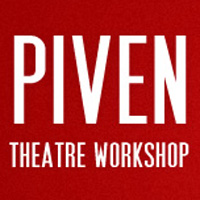
This year, the Piven Theatre Workshop celebrates 35 years of training actors how to play. Byrne and Joyce Piven founded the Piven Theatre Workshop in 1973 to teach then-revolutionary techniques growing out of the improvisational theatre games and story theatre of Viola Spolin and her son, Paul Sills. The technique uses what Joyce Piven calls "disciplined play" - games, improvisation, storytelling - to train actors. Students become the parts of a machine, play slow-motion tag, or improvise dialog to tell well-known folk tales in their own words. The goal is to help aspiring actors find artistic authenticity, spontaneity and individuality.
From its roots in the fertile soil of Chicago's experimental theatre scene of the 1970s, the Workshop has grown to encompass a training center that serves 1,000 children and adults each year, a professional Equity theatre, and ambitious scholarship and outreach programs that allow under-served and economically disadvantaged students to participate in the Workshop programs.
And as the Workshop has become more established, so have the techniques it teaches. As Joyce Piven points out, thirty years ago, theatre games and improvisational techniques were new and kind of "scary". Three decades on, they are known in the mainstream, an essential cliché of the fruity theatre world. But their effectiveness within that world has also brought mainstream success to a number of Workshop alumni, including John and Joan Cusack, Aidan Quinn, Lili Taylor, Harry Lennix, Kate Walsh, Hope Davis, and Jeremy Piven (son of Joyce Piven and her husband, Byrne).
That success is surely part of why Piven Theatre Workshop has become a destination training program for serious young actors throughout Chicago. Many young people commute long distances to take classes at the Workshop site in Evanston, some starting in 4th grade and continuing through high school. The program is also highly respected within the profession: casting agents looking for talented young actors often contact the school for recommendations. But Joyce Piven makes it clear that she values just as much the effect that the Workshop's classes can have on regular kids: "They're hungry for play," she says. "And hungry for the chance to express themselves in this confusing world."
In addition to its programs for children, the Workshop offers a full curriculum of classes for adults. Some are geared to aspiring and professional actors, others give lawyers, business people and other non-artists what Artistic Director Jennifer Green calls a "spiritual and creative workout" - a kind of mental alternative to yoga classes. She believes that the skills taught at the Workshop - the ability to listen, to be spontaneous, to understand one's unique voice -- make better people, not just better actors.
To explore the history and legacy of the Piven Theatre Workshop, this week's Talk Theatre Podcast features Joyce Piven, Jennifer Green and Piven faculty-member, Susan Payne. They talk with Anne Nicholson Weber about the philosophy that underlies the training program, their personal connections to the Workshop, child actors and the crucial importance of play in a mediatized culture.
Anne Nicholson Weber
Anne@TheatreInChicago.com
Theatre in Chicago contributor Anne Nicholson Weber saw Jack and the Beanstalk at the Goodman Children’s Theatre and has loved theatre every since. She is the author of Upstaged: Making Theatre in the Media Age, which includes interviews with Tony Kushner, Julie Taymor, Maggie Gyllenhaal, Martha Lavey and Sir Peter Hall, among many others, and her work has been published in American Theatre Magazine and other national publications.

 Follow Us On Twitter
Follow Us On Twitter